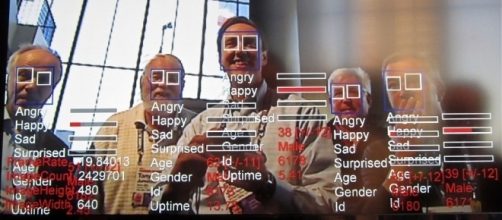A meeting of the oversight committee of the U.S. House of Representatives, last week, resulted in new information coming to light about how the Federal Bureau of Investigation collects, stores, and uses photos of American citizens. Ana Kasparian, with The Young Turks, reports that the FBI has been collecting and analyzing photos of Americans, without their knowledge, or consent. Eighty percent of photos stored by the FBI are described as "non-criminal entries," which includes photos from passports and driver's licenses.
Ms. Kasparian noted reporting from The Guardian, who explained that, unlike with DNA and fingerprints, which are only collected after a crime is suspected to have taken place, images of non-criminal citizens are being "proactively" collected.
Eighteen states were said to have worked with the FBI, making databases of license photos available for analysis. The TYT host stated that "privacy advocates are concerned," with the findings of the oversight committee, because there are no legal precedents, or regulations, covering the activity.
Cenk Uygur compares FBI with 'big brother'
"It's pretty straight forward," TYT founder Cenk Uygur observed. "It's big brother."
Kasparian described the collection of photos, without consent, as being only "one part of the problem." Algorithms used by the FBI to analyze photos are said to be "inaccurate about 15 percent of the time." It has also been found that the algorithms are "more likely to misidentify black people." The TYT host explained that, as a result of false positive, a U.S.
citizen could be the subject of a criminal investigation, without ever even being aware.
Mr. Uygur pointed to a known problem with bias being introduced into algorithms, often subconsciously, by their developers. He continued that it is known that white people have a harder time telling the difference between black people, and that, likewise, black people have problems differentiating white people. The TYT founder expressed the view that no matter who develops algorithms, there is a danger that bias can be introduced.
Fourth Amendment protects citizens from 'unreasonable' searches
Uygur pointed to the Fourth Amendment to the U.S. Constitution that protects citizens from "unreasonable searches," and stated that the FBI's photo-collecting activities are "definitely unreasonable," because the agency has zero evidence that intelligence targets have been involved in any sort of criminal activity.
Ana Kasparian described the situation as "scary," and observed, "that's the country that we live in."
Chair of the oversight committee, Jason Chaffetz, called Facial Recognition Technology a "powerful tool" for officials, which can be used to monitor "financial transactions and prevent fraud or identity theft." However, the Republican Representative from Utah continued that the technology is open to potential abuse by "bad actors to harass or stalk individuals. It can be used in a way that chills free speech." He expressed concern that facial recognition technology could be used to monitor political meetings, churches, and protests.

